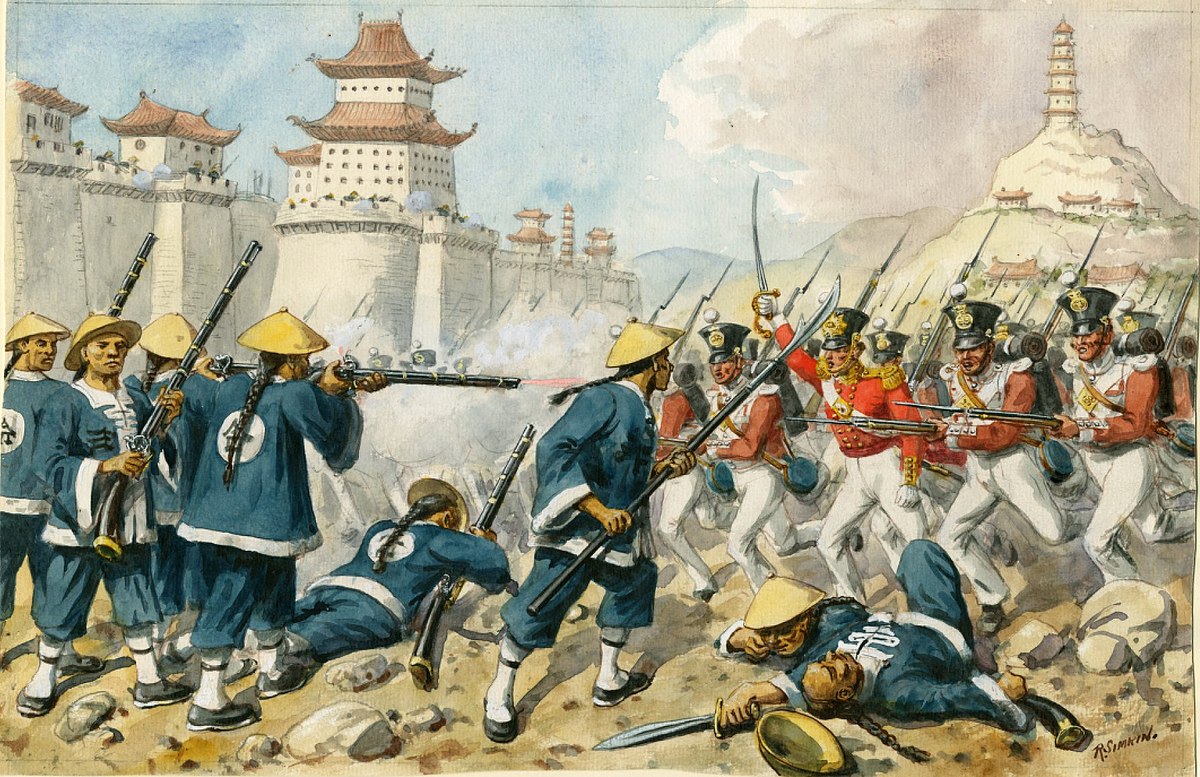
First Opium War
ChinaThe First Opium War was a series of military engagements fought between Britain and the Qing dynasty between 1839 and 1842. The immediate issue was the Chinese seizure of private opium stocks at Canton to enforce their ban on the opium trade, which was profitable to British merchants, and threatening the death penalty for future offenders. The British government insisted on the principles of free trade and equal diplomatic recognition among nations, and backed the merchants' demands. The British navy initiated the conflict and defeated the Chinese using technologically superior ships and weapons, and the British then imposed a treaty that granted territory to Britain and opened trade with China. Twentieth century nationalists considered 1839 the start of a century of humiliation, and many historians considered it the beginning of modern Chinese history.
In the 18th century, the demand for Chinese luxury goods (particularly silk, porcelain, and tea) created a trade imbalance between China and Britain. European silver flowed into China through the Canton System, which confined incoming foreign trade to the southern port city of Canton. To counter this imbalance, the British East India Company began to grow opium in Bengal and allowed private British merchants to sell opium to Chinese smugglers for illegal sale in China. The influx of narcotics reversed the Chinese trade surplus, drained the economy of silver, and increased the numbers of opium addicts inside the country, outcomes that seriously worried Chinese officials.
In 1839, the Daoguang Emperor, rejecting proposals to legalize and tax opium, appointed Viceroy Lin Zexu to go to Canton to halt the opium trade completely. Lin wrote an open letter to Queen Victoria, appealing to her moral responsibility to stop the opium trade. Lin then resorted to using force in the western merchants' enclave. He arrived in Guangzhou at the end of January and organized a coastal defense. In March, British opium dealers were forced to hand over 2.37 million pounds of opium. On 3 June, Lin ordered the opium to be destroyed in public on Humen Beach to show the Government's determination to ban smoking.
All other supplies were confiscated and a blockade of foreign ships on the Pearl River was ordered. The British government responded by dispatching a military force to China. In the ensuing conflict, the Royal Navy used its superior naval and gunnery power to inflict a series of decisive defeats on the Chinese Empire. In 1842, the Qing dynasty was forced to sign the Treaty of Nanking—the first of what the Chinese later called the unequal treaties—which granted an indemnity and extraterritoriality to British subjects in China, opened five treaty ports to British merchants, and ceded Hong Kong Island to the British Empire. The failure of the treaty to satisfy British goals of improved trade and diplomatic relations led to the Second Opium War (1856–60). The resulting social unrest was the background for the Taiping Rebellion, which further weakened the Qing regime.
